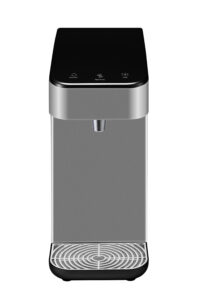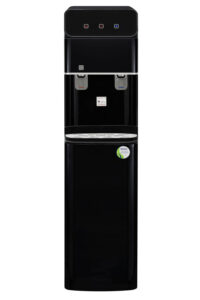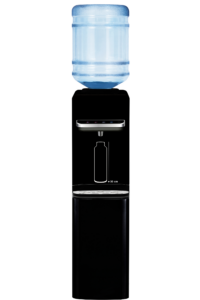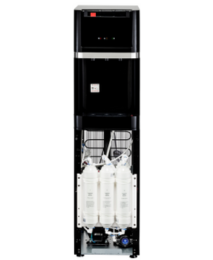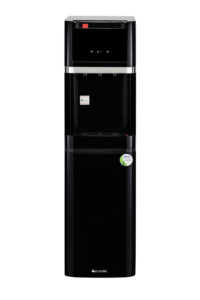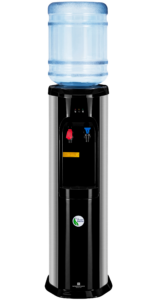A Comprehensive Guide to Reverse Osmosis Water Machines: Benefits, Applications, and Choosing the Right System
In today’s world, the quality of drinking water is a growing concern for many households and businesses. Contaminants such as heavy metals, chemicals, and bacteria can be found in tap water, making it essential to find effective purification solutions. Reverse osmosis (RO) water machines have become one of the most popular choices for ensuring clean, safe water. This guide will explore what reverse osmosis water machines are, how they work, their benefits, and how to choose the best system for your needs.
What is Reverse Osmosis?
Reverse osmosis is a water purification process that uses a semi-permeable membrane to remove impurities and contaminants from water. This technology works by applying pressure to force water through the membrane, which filters out unwanted particles and allows only clean water to pass through.
How It Works:
- Pre-Filtration: The water first passes through a pre-filter that removes larger particles such as sediment and chlorine.
- Membrane Filtration: The semi-permeable membrane filters out contaminants, including dissolved salts, bacteria, and viruses.
- Post-Filtration: Some systems include a final carbon filter that enhances the taste and odor of the water.
Benefits of Reverse Osmosis Water Machines
Using a reverse osmosis water machine offers numerous advantages, making it an excellent investment for both homes and businesses:
Effective Contaminant Removal: These machines can remove up to 99% of contaminants found in water, including lead, arsenic, fluoride, and chlorine, providing clean, safe drinking water.
Improved Taste and Odor: By eliminating chemicals like chlorine, reverse osmosis water has a cleaner, fresher taste and smell, which enhances the quality of the water you drink and use in cooking.
Cost and Environmental Savings: Using a reverse osmosis system reduces the need to purchase bottled water, which not only saves money but also reduces plastic waste, making it an environmentally friendly choice.
Appliance Protection: Purified water reduces the buildup of scale and other deposits in appliances like coffee makers and kettles, extending their lifespan and improving their efficiency.
Common Applications of Reverse Osmosis Water Machines
Reverse osmosis water machines are versatile and can be used in various settings, from small households to large commercial establishments:
Residential Use: Families use these machines to ensure that their tap water is free from harmful contaminants, providing safe drinking water directly from the faucet.
Restaurants and Horeca Sector: In the food service industry, purified water is crucial for maintaining the quality of beverages and food. RO systems help improve the taste of coffee, tea, and other beverages, while also protecting expensive equipment like espresso machines and steamers.
Offices and Businesses: Installing reverse osmosis systems in offices ensures that employees have access to high-quality drinking water, promoting health and reducing the environmental impact of bottled water.
How to Choose the Best Reverse Osmosis Water Machine
Selecting the right reverse osmosis water machine depends on several factors, including your specific needs, available space, and budget. Here are some key considerations:
Filtration Capacity: Determine how much water the system can filter daily. For households, a capacity of around 50-75 gallons per day may be sufficient, while commercial establishments may require higher capacities.
Size and Space: Consider the space available for installation. Some systems are compact and can be installed under the sink, while others may require more space.
Ease of Maintenance: Choose machines with easy-to-replace filters and reliable customer support. Regular maintenance is crucial for ensuring that the system continues to function properly and provides high-quality water.
Certifications and Warranties: Ensure that the machine is certified by recognized organizations, such as NSF or WQA, which guarantee its quality and effectiveness. Check the manufacturer’s warranty for peace of mind.
FAQs - Frequently Asked Questions about Reverse Osmosis Water Machines
1. Is reverse osmosis water safe to drink?
Yes, water purified through reverse osmosis is safe to drink and is considered one of the purest forms of water available, as it removes most harmful contaminants.
2. How often do I need to replace the filters?
The frequency of filter replacement depends on the usage and the quality of the water. Generally, filters should be replaced every 6-12 months to maintain optimal performance.
3. Does reverse osmosis waste a lot of water?
Reverse osmosis systems do use water to filter out contaminants, but newer models are designed to be more efficient, minimizing water waste.
4. Is it difficult to install a reverse osmosis water machine?
Many systems are designed for DIY installation, with detailed instructions provided by the manufacturer. However, for complex installations, professional assistance might be recommended.
5. What’s the difference between reverse osmosis and other types of filtration?
Reverse osmosis is one of the most advanced filtration methods available, capable of removing a broader range of contaminants compared to other methods, such as carbon filtration.
6. Can I use reverse osmosis water for cooking?
Absolutely. Water purified through reverse osmosis is ideal for cooking as it does not alter the natural taste of food.
Conclusion
Reverse osmosis water machines are a smart investment for anyone looking to improve the quality of water in their home or business. They offer numerous benefits, from effective contaminant removal to appliance protection, contributing to a healthier lifestyle and a more sustainable environment. If you’re considering purchasing a reverse osmosis water machine, be sure to carefully assess your specific needs to make the best choice.

